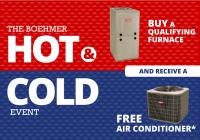When we think of air pollution we often think of outdoor “smog”, but the air in your home or office may also be polluted, even if it looks clean. Sources of indoor pollution include
- Mold
- Pollen
- Cigarette smoke
- Household cleaners
- Household décor and furnishings (like rugs and paint)
- Household pesticides (like rodent or ant-killers, or plant sprays)
- Radon
- Carbon monoxide
- Building materials (like asbestos and lead)
Indoor air quality is of particular concern in newer, better-insulated homes, or in older homes that have been recently weatherized. The “tightness” of modern houses means that any pollutants that get into the home stay there – and perhaps even increase in concentration over time if the source of the pollution is inside the house.
Indoor air quality problems can cause discomfort and even serious disease, especially in children. The good news, though, is that there are many effective ways to improve indoor air quality in your Pittsburgh home.
There are three basic strategies for improving indoor air quality:
- Air purification. Air cleaners range from small tabletop models to full-house models that are part of the central heating and cooling system. Small air purifiers are typically not very useful, but central air filters can be very effective at removing airborne contaminants. If your heating and cooling system does not include central air filtration, you should consider an upgrade to a new system.
- It is important to note that air purification will not remove gases like carbon monoxide or radon from your home. Gas pollution must be remedied by professionals.
- Ventilation. Many forced-air heating and cooling systems do not bring outdoor air into the home. Kitchen and bathroom exhaust fans and attic ventilation fans (when weather permits) can be very important in promoting the circulation of air. Also, opening windows is very important, especially when doing short-term activities such as painting that increase the number of pollutants in the air.
- You should also consider upgrading to one of the newer central heating and cooling systems that bring outdoor air into the home.
- Source control. This is the most important indoor air quality strategy, and in many cases, the simplest one. Source control is definitely the most cost-effective strategy for improving indoor air quality, because purification and ventilation both require a constant use of energy.
- Switch to all-natural household cleaners, buy household furnishings made of natural fibers (instead of synthetic fibers that can “off-gas” volatile organic compounds). When painting, use VOC-free paint. Quit smoking, if you haven’t already.
- And, don’t forget to install a carbon monoxide detector in your home, ideally next to the sleeping areas.


